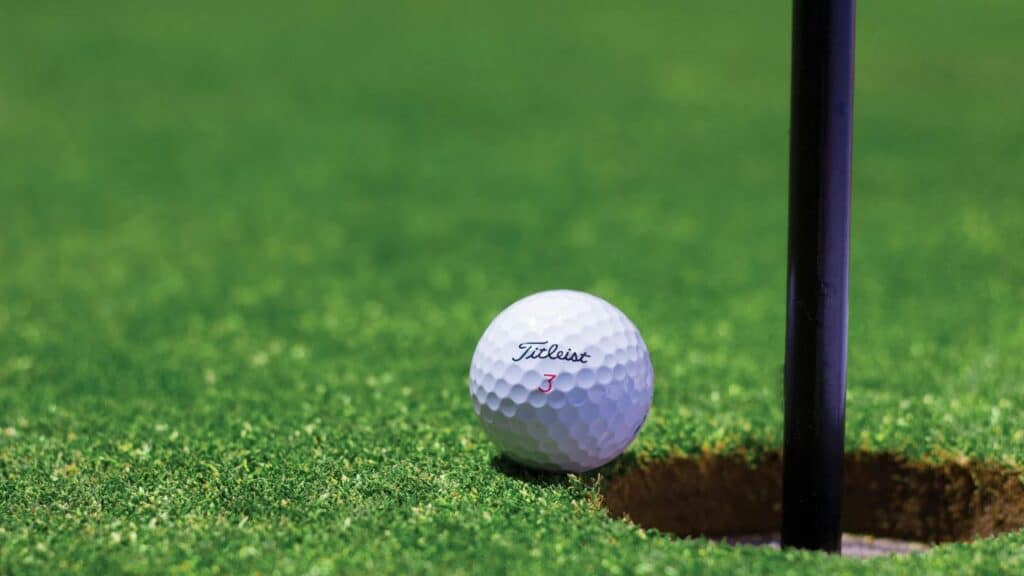At The Bluffs Addiction Campuses, we’re exploring innovative approaches to support individuals on their journey to sobriety. One such approach involves integrating the game of golf into our treatment and aftercare programs, as well as exploring how golf can help those in recovery achieve mindfulness and reduce stress. This article explores the numerous ways golf can contribute to addiction recovery, offering insights into this unique therapeutic tool.
The Mental Health Benefits of Golf: A Swing at Stress Reduction
Golf, with its lush greens and open spaces, provides a natural environment conducive to mental well-being. The act of focusing on the game can significantly reduce stress levels, offering a respite from the challenges of recovery. This natural stress reduction can be particularly beneficial for individuals in recovery, who often struggle with stress management.
Life Skills from the Links: Patience, Perseverance, and Honesty
Golf is more than just a game; it’s a teacher of valuable life skills that directly apply to the recovery journey. The sport inherently requires and cultivates:
- Patience: Waiting for your turn, practicing to improve your swing, and the overall pace of the game all contribute to developing patience.
- Perseverance: Golfers must push through challenging holes and less-than-perfect shots, mirroring the persistence needed in recovery.
- Honesty: Golf relies heavily on self-reporting and adhering to rules, reinforcing the importance of honesty – a crucial component of successful recovery.
Building a Sober Network: The Social Aspects of Golf
One of the most significant challenges in recovery is building a new, sober social network. Golf provides an excellent opportunity for social interaction in a substance-free environment. Whether it’s a casual round with friends or participating in a local tournament, golf offers numerous chances to connect with others who share similar interests.
Swinging Towards Physical Well-being
Physical exercise plays a vital role in addiction recovery, and golf offers a low-impact option that can be enjoyed by people of various fitness levels. Walking an 18-hole course can cover up to 5 miles, providing cardiovascular benefits without the high-intensity stress on joints.
Regular physical activity, such as golf, can help:
- Improve sleep quality
- Boost mood and reduce symptoms of anxiety and depression
- Increase energy levels
- Strengthen the immune system
These physical benefits contribute significantly to overall well-being during the recovery process.
A Healthy Alternative: Replacing Substance Use with Tee Time
For many individuals in recovery, finding healthy alternatives to fill the time previously spent on substance use is crucial. Golf offers a constructive and engaging way to spend leisure time, providing a natural high through physical activity and accomplishment.
Mindfulness on the Green: The Meditative Aspects of Golf
The focused attention required in golf aligns closely with mindfulness practices often used in addiction recovery. The act of lining up a shot, controlling breathing, and maintaining awareness of body positioning can serve as a form of moving meditation.
At The Bluffs, we incorporate mindfulness techniques into our golf driving range program, teaching clients how to use the game as a tool for practicing presence and awareness. This skill set is invaluable in managing cravings and navigating challenging emotions in recovery.

From Sand Traps to Emotional Regulation: Golf as a Tool for Anger Management
Golf’s challenges – from difficult shots to less-than-ideal scores – provide ample opportunities to practice emotional regulation. Learning to manage frustration on the course can translate directly to better anger management in daily life.
Our therapists at The Bluffs often use these kinds of scenarios as metaphors in individual and group therapy sessions, helping clients develop strategies for emotional regulation that extend beyond the course.
Hole-in-One Goal Setting: Achieving Milestones Through Golf
Setting and achieving goals is a fundamental part of the recovery process. Golf naturally lends itself to goal-setting, whether it’s improving a handicap, mastering a particular shot, or completing a challenging course.
We encourage our clients to set golf-related goals as part of their recovery plan if they’re into golfing. Achieving these objectives, no matter how small, can boost confidence and reinforce the belief in one’s ability to overcome challenges – a crucial mindset for maintaining long-term sobriety.
Driving Towards a Positive Self-Image
Addiction often erodes self-esteem, making the rebuilding of a positive self-image a critical component of recovery. Golf, with its opportunities for personal achievement and gradual skill improvement, can significantly boost self-esteem.
Navigating the Rough: Potential Challenges and How to Address Them
While golf offers numerous benefits for those in recovery, it’s important to acknowledge and prepare for potential challenges:
- Country club culture: Some golf environments may have a drinking culture. We teach our clients strategies for navigating these situations and encourage them to seek out sober golfing communities.
- Gambling: For those with co-occurring gambling addictions, the competitive nature of golf could be triggering. We work with clients to develop healthy approaches to the game that focus on personal improvement rather than competition.
- Frustration and self-criticism: Golf can be a challenging sport, potentially leading to negative self-talk. Our program incorporates cognitive-behavioral techniques to help clients manage these thoughts constructively.
The Bluffs Is Your Hole-in-One for Recovery
Incorporating golf into addiction recovery programs offers a unique and effective approach to supporting long-term sobriety. From stress reduction and physical health benefits to opportunities for social connection and personal growth, golf provides a multifaceted tool for individuals on their recovery journey.
At The Bluffs Addiction Campuses, we’re committed to innovative, holistic approaches to addiction treatment. If you or a loved one is struggling with addiction, we’re here to help. Our golf driving range program is just one of the many ways we support our clients in building fulfilling, sober lives.
Take the first step towards recovery today. Call us at 330-919-9228 to learn more about our programs and how we can support your journey to lasting sobriety.
Remember, recovery is a journey, not a destination. And sometimes, that journey might just lead you to the golf course, where each swing brings you closer to a healthier, happier you.








